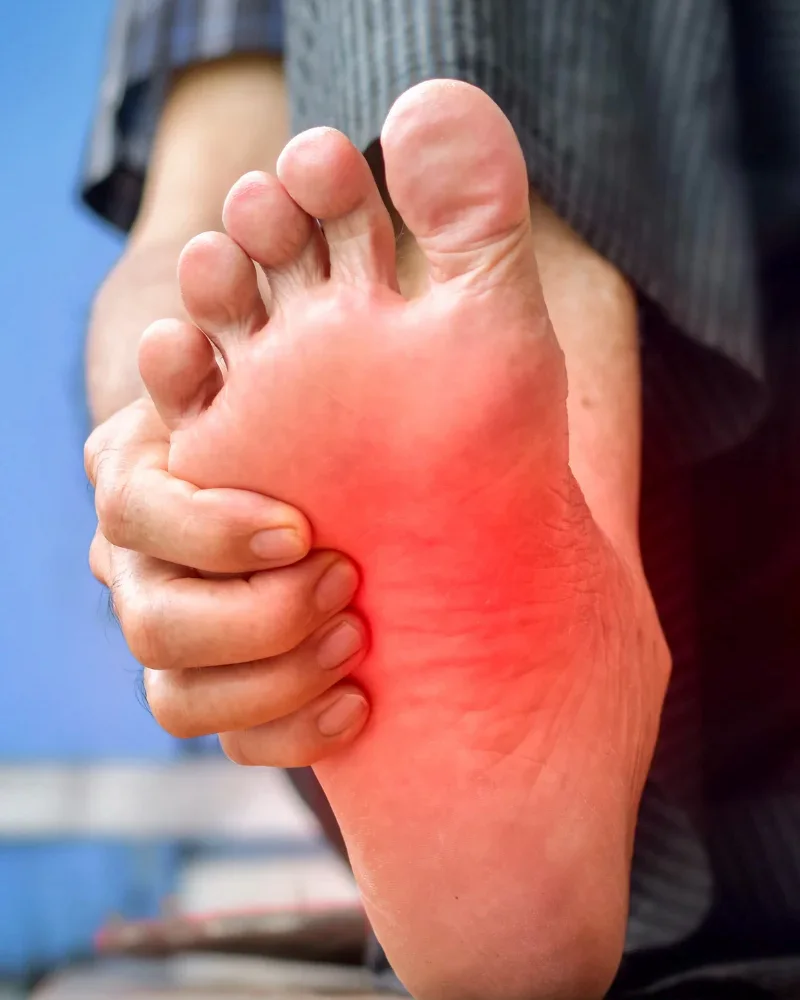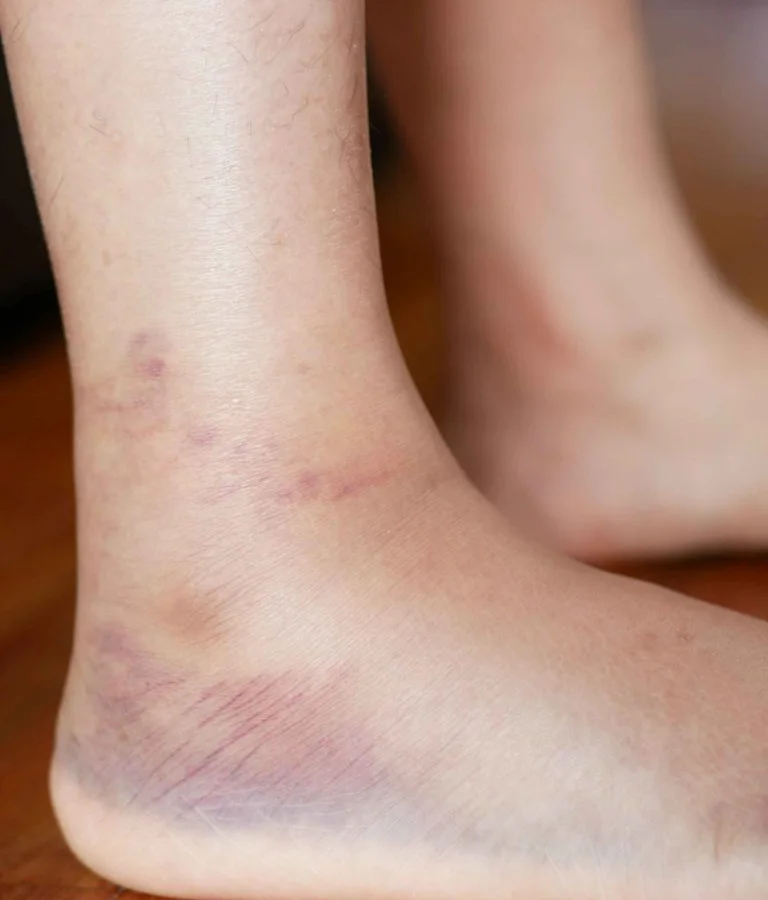Recognizing Neuropathy Signs and Symptoms
Early Detection Can Lead to Better Nerve Health
At iSpine in Pasadena, CA, we believe that understanding the signs and symptoms of neuropathy is crucial for early detection, management, and improving quality of life. Neuropathy, or peripheral nerve damage, affects millions of people and can lead to a variety of uncomfortable and debilitating symptoms. The earlier these symptoms are recognized, the better the chances of slowing progression and finding effective relief.
This guide covers everything you need to know about neuropathy symptoms, from mild to severe, helping you identify when it’s time to seek professional evaluation.

What is Neuropathy?
Neuropathy refers to damage or dysfunction of the peripheral nervous system, which transmits signals between the brain, spinal cord, and the rest of the body. It can affect sensory nerves, motor nerves, and autonomic nerves, each responsible for different functions.
- Sensory nerves: control sensation (touch, temperature, pain)
- Motor nerves: control muscle movement
- Autonomic nerves: control involuntary functions (heart rate, digestion, sweating)
Neuropathy symptoms vary depending on which nerve types are involved.
Most Common Signs and Symptoms of Neuropathy
Sensory Neuropathy Symptoms
Sensory neuropathy affects the nerves responsible for feeling. This is the most commonly affected nerve type in peripheral neuropathy.
Early Sensory Signs
- Numbness or reduced sensitivity in the hands or feet
- Tingling or pins-and-needles sensations
- Burning or sharp, shooting pain
Advanced Sensory Symptoms
- Extreme sensitivity to touch (even light touch can cause pain)
- Loss of coordination or balance (especially in low-light situations)
- Reduced ability to sense temperature changes
Motor Neuropathy Symptoms
When motor nerves are affected, the ability to control muscle movements is impaired.
Signs of Motor Neuropathy
- Muscle weakness in the hands, feet, or limbs
- Muscle cramps, spasms, or twitching
- Difficulty with fine motor skills (e.g., buttoning shirts, picking up objects)
- Foot drop (difficulty lifting the front part of the foot)
Autonomic Neuropathy Symptoms
Autonomic nerves control involuntary bodily functions, so symptoms may be less obvious but equally serious.
Autonomic Signs to Watch For
- Digestive issues (constipation, diarrhea, bloating)
- Dizziness or fainting (especially when standing up due to blood pressure changes)
- Bladder dysfunction (difficulty emptying bladder or incontinence)
- Sexual dysfunction
- Excessive or reduced sweating
Neuropathy Symptom Progression
Mild Symptoms
Symptoms like numbness, tingling, or occasional burning pain may come and go, especially in the hands or feet. Many people ignore these early signs, mistaking them for temporary discomfort.
Moderate Symptoms
As nerve damage progresses, symptoms become more frequent and severe. Burning pain, muscle weakness, and loss of coordination can interfere with daily activities like walking, gripping objects, or maintaining balance.
Severe Symptoms
In advanced cases, neuropathy can lead to permanent numbness, muscle atrophy, paralysis, and increased risk of falls or injuries. Autonomic neuropathy symptoms can also become life-threatening if they interfere with heart rate, blood pressure, or organ function.
How to Identify Neuropathy Early
Warning Signs That Should Not Be Ignored
- Persistent numbness or tingling in the hands, feet, or limbs
- Burning, shooting, or electric shock-like pain
- Muscle weakness or loss of coordination
- Increased sensitivity to touch or temperature
- Unexplained digestive issues or dizziness
If you experience any of these symptoms consistently, it’s important to seek professional evaluation. Early intervention can slow the progression of nerve damage and improve your chances of managing the condition effectively.
Common Conditions Linked to Neuropathy
- Diabetes (the leading cause of neuropathy)
- Alcohol abuse
- Vitamin deficiencies (especially B12)
- Autoimmune diseases (e.g., lupus, rheumatoid arthritis)
- Infections (e.g., Lyme disease, shingles, HIV)
- Chemotherapy treatments
- Repetitive strain injuries (e.g., carpal tunnel syndrome)

Frequently Asked Questions (FAQ) About Neuropathy Signs and Symptoms
What are the first signs of neuropathy?
The earliest signs often include numbness, tingling, or burning pain in the hands or feet, especially at night. Some people also notice a loss of sensation in these areas.
Can neuropathy symptoms worsen over time?
Yes, neuropathy symptoms can worsen if the underlying cause is not addressed. Over time, nerve damage may become more severe, leading to muscle weakness, coordination issues, and permanent numbness.
Can neuropathy affect more than just the hands and feet?
Yes, while the hands and feet are commonly affected, neuropathy can impact any area of the body, including the legs, arms, digestive system, and organs, depending on which nerves are involved.
Are neuropathy symptoms always painful?
No, neuropathy can cause both painful and non-painful symptoms. Some people experience burning pain, while others feel numbness or loss of sensation without pain.
Can neuropathy symptoms be reversed?
While some neuropathy symptoms may improve with treatment of the underlying cause, severe nerve damage is often permanent. Early detection and management are key to slowing progression.
Recognize Neuropathy Symptoms Early – Take Action
If you or a loved one are experiencing numbness, tingling, burning pain, or muscle weakness, don’t wait for the symptoms to worsen. Early detection of neuropathy can lead to more effective management and improved nerve health.
Contact iSpine in Pasadena, CA today to schedule a consultation and take the first step toward understanding and managing neuropathy symptoms before they progress.


